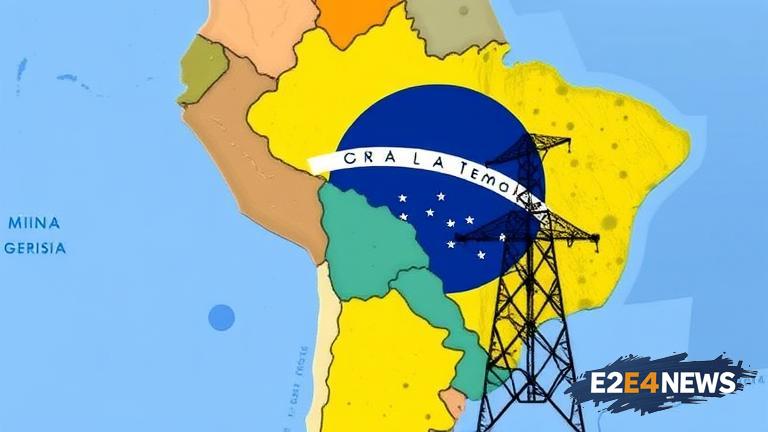The Brazilian state of Minas Gerais is contemplating a significant move to alleviate its debt burden by potentially ceding control of its utilities. This decision, if implemented, would mark a substantial shift in the state’s economic strategy, as it seeks to navigate the complexities of its financial obligations. The move is largely driven by the need to reduce the state’s debt, which has been a pressing concern for some time. By privatizing its utilities, Minas Gerais aims to generate much-needed revenue and stabilize its financial situation. However, this proposal has sparked a mix of reactions, with some advocating for the benefits of privatization, such as increased efficiency and investment, while others express concerns over the potential impact on public services and the welfare of the state’s residents. Critics argue that privatization could lead to higher prices for essential services, negatively affecting low-income households. On the other hand, proponents believe that private sector involvement could bring about modernization and better management of the utilities, ultimately benefiting the public. The state’s government must carefully weigh these considerations as it moves forward with its plans. The economic stability of Minas Gerais and the well-being of its population hang in the balance, making this decision a critical one. As the state navigates this challenging situation, it is also important to consider the broader implications for Brazil’s economy. The country has been working to improve its economic landscape, and the actions of its states, including Minas Gerais, play a significant role in this effort. The potential privatization of utilities in Minas Gerais could set a precedent for other states facing similar financial challenges. It is essential for the government to engage in thorough discussions with all stakeholders, including residents, businesses, and potential investors, to ensure that any decision made is in the best interest of the state and its people. Transparency and public participation in this process are crucial to building trust and support for the chosen path. Furthermore, the state should prioritize measures that protect vulnerable populations and ensure that the privatization process, if it proceeds, is conducted in a fair and competitive manner. This includes establishing clear regulatory frameworks and safeguards to prevent monopolistic practices and guarantee the quality of services. In conclusion, the potential privatization of utilities in Minas Gerais is a complex issue that requires careful consideration of multiple factors. While it presents an opportunity for the state to address its debt and potentially improve the efficiency of its utilities, it also raises important questions about the impact on public services and the economy. As the situation unfolds, it will be important to monitor developments and ensure that the needs and concerns of all stakeholders are addressed. The decision made by Minas Gerais will not only affect its own future but could also have implications for the broader economic and social landscape of Brazil. Therefore, a balanced and informed approach is necessary to navigate this critical juncture. The state’s ability to manage its debt while protecting the interests of its residents will be a significant test of its governance and commitment to the well-being of its population. In the coming months, the actions of Minas Gerais will be closely watched, both within Brazil and internationally, as the world observes how the state chooses to address its financial challenges and the consequences that follow. The path forward is fraught with challenges, but with careful planning, transparency, and a commitment to the public interest, Minas Gerais can work towards a more stable and prosperous future. This is a developing story, and as more information becomes available, the implications of the state’s decisions will become clearer. For now, the people of Minas Gerais and observers around the globe wait to see how this situation will unfold and what the future holds for this significant Brazilian state.





